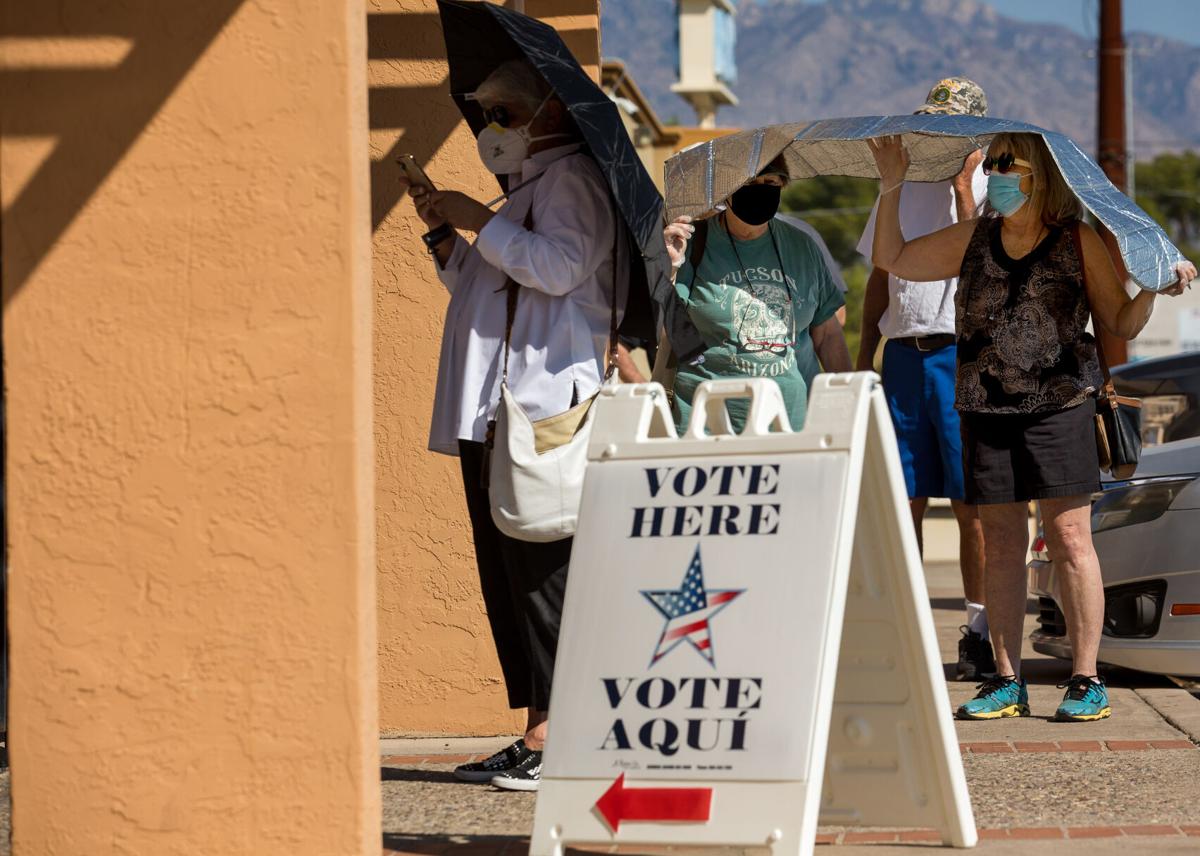PHOENIX — The state’s top elected Republican says he believes the lawsuit filed by his political party to quash early voting is “ill-conceived.”
“It would undo the work of many Republican governors and secretaries of state over the past several decades,” Gov. Doug Ducey told reporters on Tuesday. And the governor said the lawsuit filed by the Arizona Republican Party and one of its members with the Supreme Court is “poorly crafted.”
The governor’s position aligns him with Democratic secretary of state, who also is defending the practice and legality of early voting and already has asked the justices to throw out the challenge.
By contrast, Republican Attorney General Mark Brnovich, who is running for U.S. Senate, declined to take a position on whether the GOP lawsuit has any merit. Instead, he said the challenge should be thrown out for procedural reasons.
Ducey’s comments come as the Arizona Democratic Party and two of its national organizations have sought permission from the justices to intervene to defend the current laws against the legal attack by the Republicans. But that is getting a chilly response from Hobbs who, while she is a Democrat, told the high court they bring nothing new to the case and, in fact, could ultimately delay the resolution.
Meanwhile, the Coconino County Board of Supervisors has submitted its own “friend of the court” legal arguments telling the justices they can’t simply decide the issue on academic legal arguments. County Attorney William Ring said they have to consider the rights of those who could lose their right to cast early ballots.
“This court must justly consider whether action upon the petition (by the Arizona Republican Party) can or will so interfere as to prevent the free exercise of the right of suffrage,” he told the court. And that, Ring wrote, means the justices have to consider “the facts that measure and gauge the personal impact upon the content of individual expectations that are assured by (the Arizona Constitution).”
In filing suit, Alexander Kolodin, representing the state GOP, contends there is nothing in the Arizona Constitution that allows for voting other than on Election Day and other than at polling places.
But GOP gubernatorial hopeful Kari Lake, in her own friend-of-the court filing, has a different take on what the state constitution requires or allows.
“Absent an actual reason why the voter cannot vote at the polls, voting occurs at the polls on Election Day, not Election Month,” wrote Tim La Sota, her attorney. “And a ‘reason’ does not include that the able-bodied, physically present voters simply does not want to take the minimally burdensome step of presenting him or herself at a polling place on Election Day.”
And Lake said that early voting can lead to the kind of “gamesmanship” she said occurred in Wisconsin, where Joe Biden outpolled Donald Trump by 20,682 votes.
In filing suit, Alexander Kolodin, representing the state GOP, contends there is nothing in the Arizona Constitution that allows for voting other than on Election Day and other than at polling places.
Yet lawmakers have been allowing for some form of absentee voting since 1918. And he big change came in 1991 when the Legislature approved — and Republican Gov. Fife Symington signed — the current law allowing anyone to request an early ballot without needing an excuse.
But Kolodin told the justices the lack of specific constitutional authority, coupled with what he said is language about casting ballots for initiatives at polling places, makes all that legally irrelevant.
Ducey, for his part, isn’t buying the argument
“I’m certain the way it’s written it’s destined to fail,” he said.
The court has not yet set a date to hear arguments.
But attorney Roopali Desai, who represents Hobbs, told the justices she wants to keep the issue simple. And, that, Desai said, means not letting others formally intervene, including state and national Democratic parties.
“The secretary is preserving Arizonans’ right to vote and defending Arizona’s early voting system against petitioners’ baseless challenges,” she wrote.
“At bottom, inserting more defendants into this action to assert duplicative defenses if unnecessary and inefficient,” Desai told the court, saying that allowing the Democrats into the case could “unduly delay or prejudice” getting it resolved, suggesting they instead are free to file their own friend-of-the-court brief.





